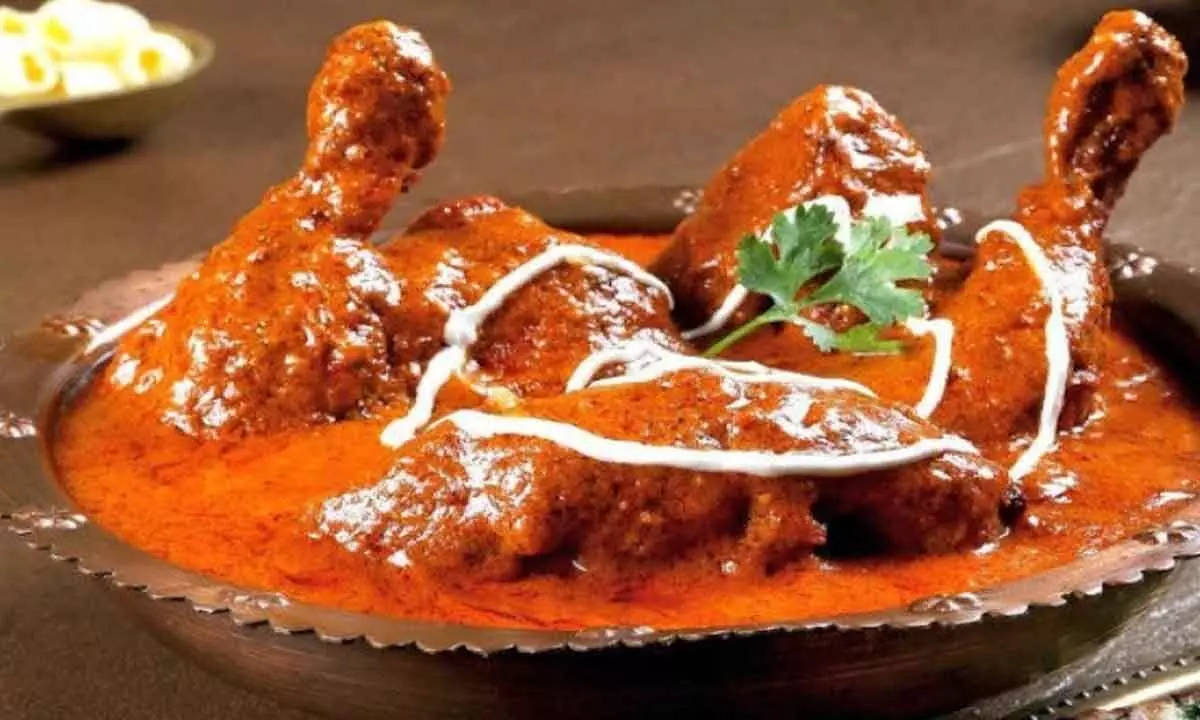Bird Flu Scare in Hyderabad Leads to Decline in Chicken Sales
Chicken sales in Hyderabad plummet due to bird flu concerns, leading to increased demand for fish and mutton. Authorities urge biosecurity measures.
image for illustrative purpose

A sharp decline in chicken sales has been observed in Hyderabad amid growing concerns over avian influenza, commonly referred to as bird flu. Consumers are increasingly opting for fish and mutton, leading to a notable surge in their demand.
Sabyasachi Ghosh, special chief secretary for animal husbandry, has directed district collectors to stay vigilant and enforce preventive measures. Authorities have been instructed to strengthen biosecurity protocols to curb potential virus transmission and safeguard the poultry industry. Farmers and stakeholders have also been urged to remain alert and informed.
On Tuesday, chicken markets that typically witness heavy footfall saw a drastic reduction in buyers. Despite live chicken prices being officially set above Rs 150 per kg, wholesalers were seen offloading stocks for as low as Rs 80 per kg. “We generally sell around 1,000 kg of chicken daily in both retail and wholesale segments. Today, sales have dropped to approximately 200 kg. This trend has continued for the past four days,” said Mohammed Iqbal, a vendor at Nampally Market, one of the city's primary poultry hubs.
While mutton prices have remained relatively stable, fish prices have surged due to increased demand. “Wholesale and retail demand has risen significantly. Rohu fish, previously sold at Rs 100 per kg, is now priced between Rs 120 and Rs 130. Murrel fish, which used to cost Rs 400 per kg, has increased to Rs 500,” said Srinivas, a wholesaler at Ramnagar Fish Market.
With wedding season underway, non-vegetarian dishes are a staple at receptions. However, due to prevailing bird flu concerns, many hosts are opting to exclude chicken from their menus. Talking to Deccan Chronicle, Mustafa Majaz Hussain, a caterer, noted that customers from various communities, including Hindus, Muslims, and Christians, have been modifying their menu preferences. “Hosts are replacing chicken with seafood and mutton, prioritizing guest safety over cost considerations,” he explained.
National Egg Coordination Committee’s assistant general manager, Sanjeev Chintawar, acknowledged a decline in chicken sales, attributing part of the decrease to the ongoing Mahakumbh event. “The rumors surrounding bird flu may have caused an additional 10 per cent drop in sales,” he noted. Telangana records a daily consumption of six to seven lakh chickens and two crore eggs, with poultry farmers adhering to strict safety measures before supplying products to the market.
Dr. Madhusudhan, assistant director of the animal husbandry department, outlined the protocol for suspected bird flu cases. “Samples must be sent to the High-Security Animal Disease Laboratory in Bhopal for testing. If confirmed, authorities will enforce containment measures within a one-kilometer radius, culling all poultry in affected areas and implementing strict biosecurity measures,” he told Deccan Chronicle.
Dr. Ashish Chauhan, an internal medicine specialist, highlighted the importance of proper food preparation. “Fully cooked chicken is safe for consumption, while undercooked poultry poses health risks. Consumers should ensure that birds are healthy before slaughter,” he advised.

